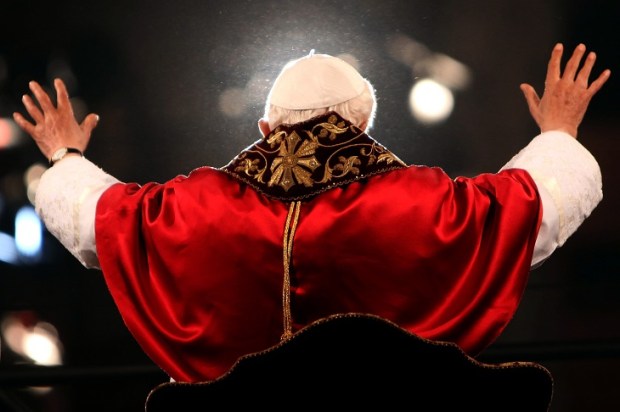Pope Francis is on his way back from Mongolia this week. On a visit to that country, which has scarcely more Catholics than an outback sheep station, the Pope stood in reverence before a statue of Genghis Khan and later lauded his empire.
The Great Khan had forged a ‘pax Mongolica’ which ‘acknowledged the outstanding qualities of the peoples present in [its] immense territory and put those qualities at the service of a common development’ he said.
Actually, Genghis was the most bloody and brutal warlord of the entire Middle Ages – a man who would have put even Cersei Lannister from Game of Thrones to shame. Up to 40 million people died, directly or indirectly, at the hands of his armies.
The Pope’s identification of local Mongolian leaders as Genghis’ heirs is also bitterly ironic when around one in 200 of all men throughout today’s entire global population are descended from him. What chances that Genghis produced his sons through loving, consensual encounters? Perhaps Francis could consult the #MeToo movement…
His Holiness’ latest foreign faux pas comes as part of a disconcerting pattern – one in which he would seem to be all too fallible when it comes to appraising the qualities of authoritarian regimes and dictators.
Only last week he was at in on the other side of Asia, gushing about Russian imperial greatness and telling young Russians that they are ‘heirs of the great Russia’. Not a lot of Ukrainians enjoy fond memories of Peter the Great or Catherine the Great (the two ‘great Russians’ he specifically name-checked).
By endorsing a narrative pumped out by Vladimir Putin’s propaganda machine, the Pope needlessly alienates Ukrainian Catholics who fought hard to stay loyal to Rome. That loyalty has been a key part of their identity, helping them in their battle to survive aggressions from tsars and communists. Francis has rubbed it back in their faces.
And then there is China. Francis meekly accepted the Communist Party’s prohibition on Chinese Catholics travelling to Mongolia to greet him this week. But then he also recently confirmed the Party’s pick for Bishop of Shanghai, a man installed unilaterally by Beijing in violation of its Vatican accord. Francis let slip on his plane journey home that he is still working to convince China that the Church is not in hock to a hostile foreign power.
In the time of Genghis Khan, Popes stood up to mighty princes for less. Pope Gregory VII famously made the Emperor Henry IV walk barefoot to him through the snow in penance during the Investiture Conflict in 1084. Xi Jinping won’t be doing that to placate the modern Vatican, but at what point does understandable caution towards the dragon’s temporal might creep over into spiritual cowardice? Does the Pope want to be a leader of men or just a cuddly giant panda?
The Pope’s whole Mongolia trip has been, in some ways, nothing more than a cosplay fantasy – a study in ‘Performative Franciscanism’ by which Pope Francis has journeyed in the footsteps of that Order’s medieval missionaries to bask in the Asian other’s exotic strangeness and to share their dream of domesticating for Christ.
Yet there are costs to this disengagement from reality – both for the Vatican and for Catholics worldwide. Francis’ ‘Orientalising’ blind spot seems to be holding him back from articulating differences between right and wrong or even from recognising good from bad – firm signs of leadership that marked Pius XI’s brave rebuke of Italian Fascism and John Paul II’s generational struggle with global Communism.
How can true believers within Ukraine, Hong Kong, or Mainland China not be dismayed at Francis? Does he really think the Vatican will gain any influence or advantage by avoiding confrontation with those who wish Catholics harm? Has he no concerns that his silence and perceived complicity compromises his moral authority when he speaks out on other issues?
It is hard not to suspect Francis’ softly-softly approach towards Moscow and Beijing stems from the sorts of reflexive anti-Western, anti-Capitalist, anti-American impulses that were the hallmark of 20th Century Latin American caudillos. Nevertheless, a 21st Century Pope must be a man of integrity or he is nothing. Crass statements which undermine that integrity damage the institution he leads and serves.
Dr Miles Pattenden from the Australian Catholic University

























